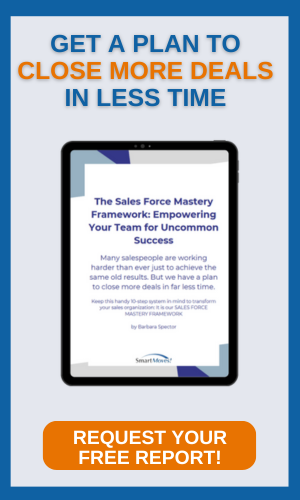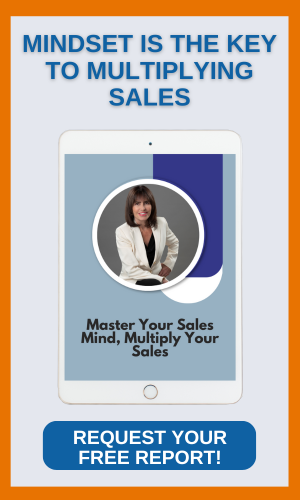 Posted by Aoife Gorey
Posted by Aoife Gorey
I’m a passionate person. I work hard and I love life. I try to give 110 percent to everything I do, whether it’s my personal relationships, cooking, a work project, or mentoring time with my “little sister.” I consider my passionate streak to be one of my best qualities. But, at times, being too passionate can be a negative thing in the workplace. I tend to get overly excited and more emotional about things that I care about.
Real estate mogul, Barbara Corcoran (you’ve probably seen her on Shark Tank) recently stated “Too much passion blinds an entrepreneur, just like a guy who’s madly in love. He can’t see clearly, he can’t listen, and he knows for sure that the girl is ‘absolutely perfect!’” In an article for Business Insider, Corcoran admits she’s also made the mistake herself. “Being too wrapped up in a love affair with your business idea doesn’t allow you to change what’s wrong.”
Passion stems from emotion, and no one should be overly emotional in work. In recent years, I’ve learned this lesson.
I used to sit in meetings with coworkers and executives with a ruby red face if I didn’t like their reaction to a proposal, or I would get defensive when they didn’t see my perspective on a project. I would obsess all day over a certain comment someone made, or wonder why my coworker didn’t agree in our brainstorming meeting. As my career grew and these emotions intensified, it became too much. I was getting stressed, not sleeping, and constantly taking on too much work.
Then, I reached out to someone who has mentored me over the years and asked, "How do you do all that you do and always stay positive? You’re so passionate, but you never seem unnerved or affected by people’s comments.”
He introduced me to a concept that he said has changed his life - mindfulness. Mindfulness is the practice of purposely focusing your attention on the present moment – and accepting it without judgment. It is true that the only person that can control how you feel about a certain situation is you, so why let others affect your emotions and your productivity?
“When you are mindful… You become keenly aware of yourself and your surroundings, but you simply observe these things as they are. You are aware of your own thoughts and feelings, but you do not react to them in the way that you would if you were on “autopilot”… By not labeling or judging the events and circumstances taking place around you, you are freed from your normal tendency to react to them.”
When I read that definition, I was sold. I visited Amazon and purchased, Fully Present: The Science, Art, and Practice of Mindfulness.
There are many practices in mindfulness to help you learn how to gain control of your emotions, like meditation, yoga, and paying attention to your breathing.
Many major organizations have implemented mindfulness programs for its employees, like Apple, Google, Procter & Gamble, and Aetna. According to the Financial Times, “Among senior executives who took the course, 80 percent reported a positive change in their ability to make better decisions, while 89 percent said they became better listeners.”
Through reading the books, and continuing further research into the topic, I instantly began to see a change in myself at work. My productivity increased, my emotion level settled, and I was significantly more able to deal with stressful and negative situations. I even found myself listening and communicating with my personal relationships more effectively because of my new ability to process information before reacting.
There are hundreds of practices, and many books to choose from on the topic, and I would highly recommended introducing mindfulness to your life.
Here are some simple steps that work for me to get you started:
- Take five to ten minutes of quiet time in the morning before you leave for work. Close your eyes and concentrate on the tasks at hand that day. What do you want to accomplish? If that thought overwhelms you, focus on your breathing and calm yourself into a positive, can-do mentality. Write a list down if you have to.
- Take your time. Do one thing at a time and focus your undivided attention on the task at hand.
- Really listen to others. Be present in conversations with coworkers, and hear what they’re saying.
- Take a break. This one is most impactful for me before a presentation or after a stressful meeting. Walk around your building block for five minutes, or close your office door and take some deep breaths.
- I honestly didn’t see myself doing this one at all but I cannot doubt its effectiveness. We’re surrounded by technology 24/7; this can be toxic and harmful to peacefulness. Take 30 minutes at the end of your day. Remove yourself from the TV, telephone, and other people. Find a quiet space, focus on your breathing, and close your eyes. When you find your mind wandering, pull it back and concentrate on a clear, calm mind. There are also many highly-recommended CDsto help you do this.
Mindfulness has been proven to improve cognitive functioning and lower stress levels. I’m still proud to be a highly passionate person, but having the ability to control my reactions and emotions is priceless. I don’t think my career would have exactly failed without mindfulness, but it’s definitely a serious contributor to my success so far.
Passion + mindfulness = a powerful combination in the workplace.
If you want to know how mindfulness can help you succeed at work, just try it for yourself.
Read More:
Mindfulness At Work: 5 Tricks for A Healthier, Less Stressful Work Day
Work Stress: An Email Meditation To Reduce Tension At Your Desk
3 Tips for Being Mindful at Work





